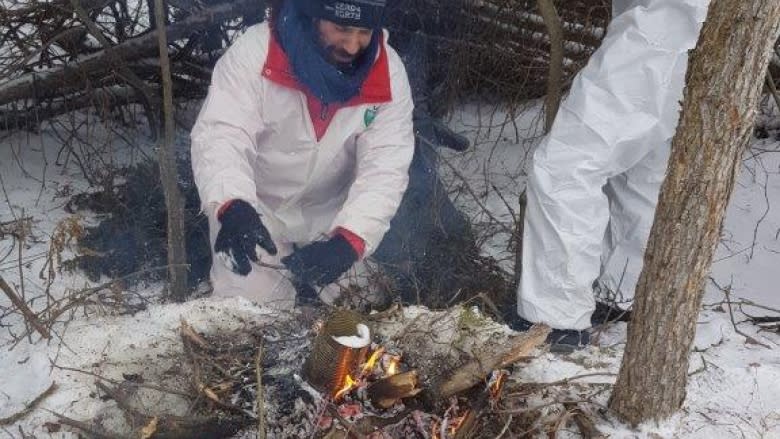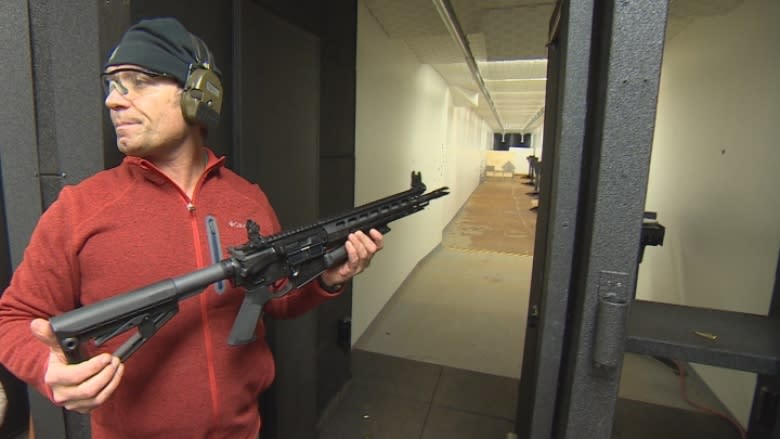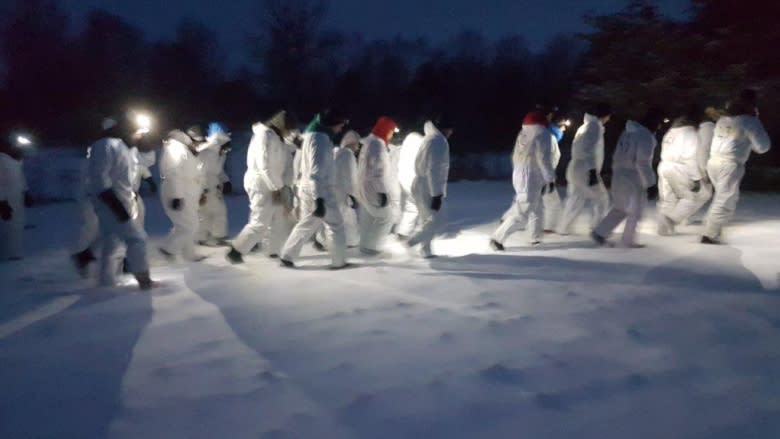Soldiers of fortune: MBA students get leadership lessons from ex-commandos
The course is killer — and the instructors know a bit about that, having until recently been part of Canada's elite counterterrorism special ops team, Joint Task Force 2.
Most are veterans of Afghanistan, Iraq and dozens of other countries where they were involved in missions that remain top secret.
Now, they're greeting 40 MBA students from Queen's University — one of Canada's best business schools — emerging from a bus in the dead of night at a small-town airfield in eastern Ontario. The students are here for a lesson in resiliency — a key skill wanted in the corporate sector but very difficult to teach.
This weekend is supposed to be the answer.
"We're taking them out of their comfort zone, challenging them, pushing them to the edge so they understand where that edge is," says Steve Day, a former commander of JTF2 and now the president of Brockville, Ont.-based Reticle Ventures, a new security consulting and training company.
Over more than 36 largely sleepless hours, the MBA students will face a series of tasks designed to test their ability to work under pressure. Sometimes they'll need to confront fears, including rappelling from a multi-storey building in total darkness. At other times they'll need to solve complex problems as the team members are under stress — in large part, from fatigue.
"Our hope is that we're going to help these students work through this ambiguous environment to be a little more resilient when they run into challenges as future leaders, business leaders, and make those team-based decisions," says Day. "And that's what special operations is famous for: small teams, men and women, knowing what they're doing when they absolutely have to do it for their country."
'Find out what you're capable of'
The Reticle approach is a Canadian take on something American business schools have used for years.
Former Navy SEALs run intensive leadership courses, such as SOT-G, where hedge fund and other financial service managers face gruelling obstacle courses and even live-fire demonstrations.
In the U.S., the number of veterans is so large, and retired officers in such demand that nearly every Fortune 500 company has a former military officer in the executive suite. One in 10 has a military veteran at the helm.
The Smith School of Business at Queen's, in Kingston, Ont., joined Reticle to create an exercise that tests flexibility and strategy. The partnership is unique in Canada.
"In life, you find out what you're capable of when you're put under stress," says Matthew Reesor, director of the school's MBA program. He's taking a chance with the Reticle experiment and may incorporate it permanently into the curriculum.
The 2017 winter exercise will be a barometer of what works for students — and what doesn't. "They're going to be frustrated, they're going to be angry, they're going to be scared.... They'll be able to draw back on this experience and say, 'Yeah, I can do this.'"
Confronting a no-win situation
Parthiban Nagarajah is a top-performing British student with deep international connections — and an excitement about what the weekend experiment will bring. "I genuinely have no idea what we've let ourselves in for," he says.
One of the first tasks Nagarajah and his six-person team face is a treasure hunt of sorts. They're told 45 items are buried in the snow within the area of a taped-off large square. "We got to 44, and the 45th item has proven to be quite elusive," Nagarajah says.
What he doesn't know is that there is no 45th item. It is a no-win situation. The challenge was never about finding the article; instead, it measured the team's capacity to continue on in the face of likely failure. "We keep going until we get it. Either we get it or we run out of time," says Nagarajah.
After more than 24 hours awake, his team faces its most stressful test. They are blindfolded, led into a dimly lit room and given 30 seconds to review a series of photos of people. The challenge is derived from a memorization process used by military snipers to identify their targets.
But for the students, it doesn't go well.
The team is unable to match names with faces — and misses key facial features.
"We need a strategy," one team member says in an agitated tone. "We had no leader on the last one. We all walked away. So we need a leader this time."
Once again, the team is not aware of the real test. The increasingly tense team member is a plant, here expressly to challenge the leader and the group dynamics just as fatigue is eating away at the spirit of the individual members.
To a degree, it works. "I'm resigning," says group leader Lisa. "I think it's too far out comparing this to the business world. I get paid for what I do in the business world. I'm not going to work harder. There's no motivation for this."
With some prodding from Smith School faculty, the group rallies and confronts the agitator. He's removed from the team, and the relief is visible on their faces.
"When they're deprived of sleep, that really starts to affect their cognitive abilities," explains Reticle director Mike Coyle.
Sleep is the reward. Over the course of the 32-hour challenge, there are only a few opportunities for short naps. But on the bus ride back to Queen's, the driver is the only one awake. The weekend experiment is complete. A demanding trial run for life as a corporate leader.





